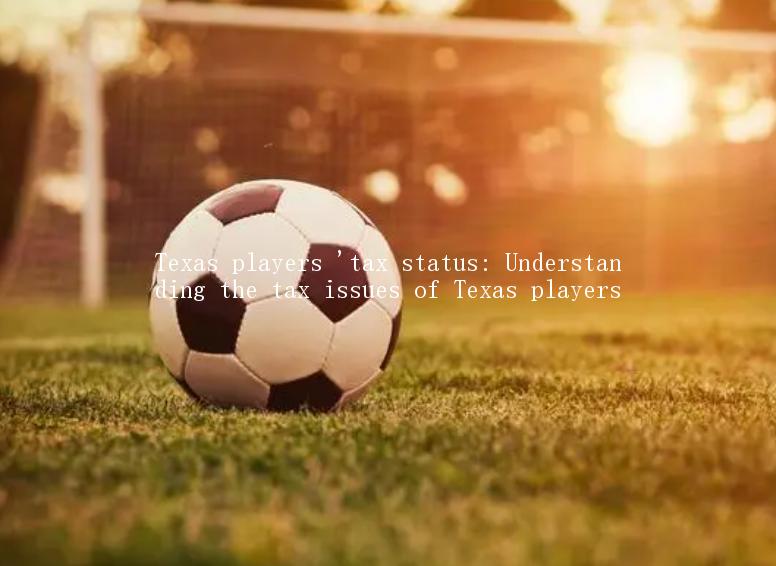Texas players 'tax status: Understanding the tax issues of Texas players

Texas is a famous player gathering place in the United States, attracting a large number of football, basketball and baseball players. The tax issues of these players have attracted much attention because taxes have an important impact on their income and personal finances.
Texas is known as a "low-tax" state because it has no personal income tax. This is undoubtedly good news for high-earning players. However, they still need to pay federal income taxes and other taxes. Federal income taxes are calculated based on tax brackets, and players with higher incomes will face higher taxes.
In addition, Texas has also implemented the "Maggie Act" on some players. Under the Maggie Act, the number of days players play and practice in a state, as well as the amount of time they play and practice in other states, will affect their tax status. If players play in other states more than nine times as long as Texas, they will have to pay additional state income taxes.
In addition, players 'tax status is also affected by their personal income sources. Some players have other sources of income in addition to salaries paid by the club or team, such as endorsement contracts, bonuses and franchise income. These additional income must also be taxed and may be subject to different tax regulations.
In addition, whether players own a home in Texas will also affect their tax status. If players have a residence in Texas, they will likely receive Texas tax incentives. However, if they also own homes in other states and stay in other states longer, they may need to pay taxes in other states.
Understanding the tax status of Texas players is crucial to them. They need to understand the details of different tax regulations and how to minimize tax burdens. At the same time, they also need to make careful choices in hiring accountants and tax experts to ensure that their financial situation is effectively managed and planned.
RELATED STORIES






LATEST NEWS







